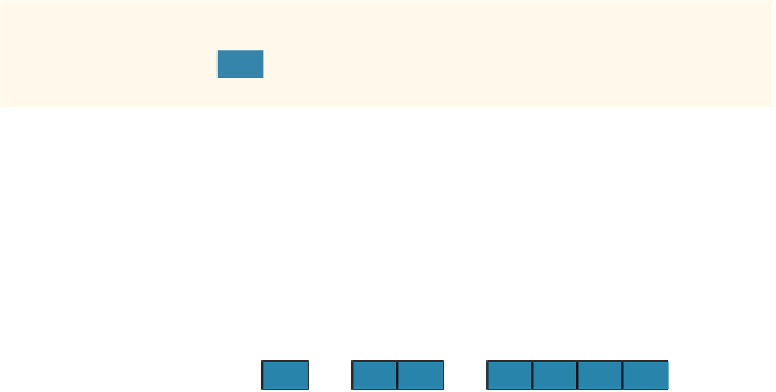Java Reference
In-Depth Information
Consider the following statement:
int
[] list =
new int
[10];
This statement declares an array
list
of
10
elements. The elements are
list[0]
,
list[1]
,...,
list[9]
. In other words, we have declared 10 variables of type
int
(see Figure 9-3).
[0]
[1] [2]
0
[3] [4] [5]
0
[6]
0
[7]
[8]
[9]
list
0
0
0
0
0
0
0
0
0
0
FIGURE 9-3
Array
list
The assignment statement:
list[5] = 34;
stores
34
into
list[5]
, which is the sixth element of the array
list
(see Figure 9-4).
[0]
[1] [2]
0
[3] [4] [5]
34
[6]
0
[7]
[8]
[9]
list
0
0
0
0
0
0
0
0
0
0
FIGURE 9-4
Array
list
after the execution of the statement
list[5]= 34;
Suppose
i
is an
int
variable. Then, the assignment statement:
list[3] = 63;
is equivalent to the assignment statements:
i = 3;
list[i] = 63;
If
i
is
4
, then the assignment statement:
list[2 * i - 3] = 58;
stores
58
into
list[5]
, because
2 * i - 3
evaluates to
5
. The index expression is
evaluated first, giving the position of the element in the array.
Next, consider the following statements:
list[3] = 10;
list[6] = 35;
list[5] = list[3] + list[6];































Search WWH ::

Custom Search